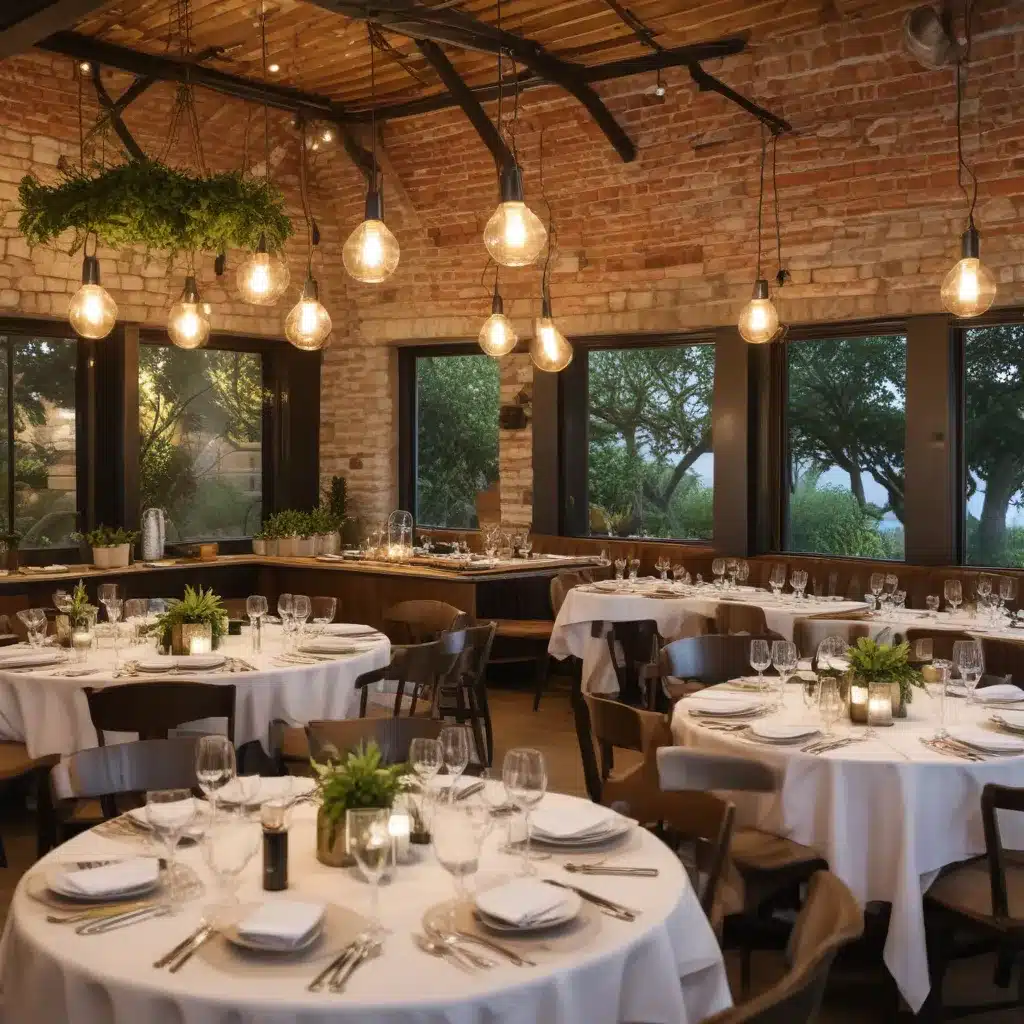
As an experienced hospitality consultant, I’ve had the privilege of witnessing the remarkable transformation unfolding in the world of luxury resort dining. In our 15 years in luxury hospitality… The pursuit of culinary excellence is no longer confined to simply tantalizing the palate; it has expanded to encompass a deeper commitment to environmental stewardship and social responsibility. Pioneering resorts and spas, such as The Landing Resort & Spa, are at the forefront of this movement, redefining the boundaries of sustainable gastronomy.
Now, this might seem counterintuitive for a luxury resort…
Luxury Hospitality’s Sustainable Evolution
High-end resorts and spas have long been synonymous with unparalleled service, exquisite design, and gourmet dining experiences. However, as the global consciousness around environmental and social impact has grown, these establishments are now embracing a more holistic approach to hospitality. Recognizing that the true measure of excellence extends beyond the realm of indulgence, luxury hospitality brands are actively integrating sustainable practices into every aspect of their operations.
At the heart of this transformation lies a steadfast commitment to sourcing locally and seasonally. By forging close partnerships with regional farmers, ranchers, and producers, these establishments are not only able to showcase the finest and freshest ingredients but also contribute to the resilience of their local food systems. This farm-to-table approach not only reduces food miles and emissions but also supports the livelihoods of small-scale agricultural communities, fostering a more equitable and sustainable supply chain.
Pioneering Sustainable Culinary Techniques
Beyond the source of their ingredients, luxury resorts and spas are also pioneering innovative culinary techniques that minimize waste and environmental impact. From implementing zero-waste initiatives to adopting energy-efficient kitchen equipment, these establishments are redefining the boundaries of sustainable gastronomy.
One notable example is The Landing Resort & Spa, which has implemented a comprehensive composting program to divert food scraps from landfills. By repurposing organic waste into nutrient-rich soil amendments, the resort not only reduces its carbon footprint but also creates a closed-loop system that nourishes the very land from which its ingredients are sourced.
Moreover, these trailblazing resorts are embracing innovative food processing technologies that eliminate the need for harmful chemicals. For instance, the use of slightly acidic electrolyzed water (SAEW) for disinfection has emerged as a game-changing solution, offering a 6-log reduction in Listeria monocytogenes while eliminating the reliance on toxic-chemical sanitizers. By adopting these cutting-edge techniques, luxury establishments are not only prioritizing food safety but also minimizing their environmental impact.
Culinary Excellence Meets Sustainability
Sustainable gastronomy in luxury resorts and spas is not merely a buzzword; it is a holistic philosophy that permeates every aspect of the dining experience. From curating menus that celebrate local and seasonal ingredients to implementing waste reduction strategies, these establishments are redefining the boundaries of what it means to dine in style.
One such example is Blue Hill at Stone Barns, a Michelin Green Star recipient in New York’s Hudson Valley. Helmed by Chef Dan Barber, this renowned restaurant has seamlessly integrated its on-site farm into its culinary operations, serving dishes that not only delight the palate but also highlight the bounty of the land. By embracing regenerative agriculture and nose-to-tail cooking, Blue Hill at Stone Barns demonstrates how exceptional dining experiences can coexist harmoniously with planet-friendly practices.
Similarly, Dirt Candy in New York City has garnered acclaim for its innovative vegetarian cuisine and unwavering commitment to sustainability. Under the leadership of Chef-owner Amanda Cohen, this Michelin Green Star restaurant utilizes creative techniques to transform vegetables into culinary masterpieces, while also implementing eco-friendly practices such as composting, recycling, and energy conservation.
Cultivating a Culture of Conscious Consumption
The rising demand for sustainable dining experiences has not gone unnoticed in the luxury hospitality sector. Increasingly, discerning guests are seeking out resorts and spas that not only cater to their epicurean desires but also align with their values of environmental stewardship and social responsibility.
In response, leading establishments are actively engaging with their local communities and supporting initiatives that promote a more sustainable and equitable food system. From partnering with urban farming cooperatives to hosting educational workshops on sustainable food production, these resorts are committed to fostering a culture of conscious consumption.
Moreover, the Michelin Green Star designation has emerged as a coveted recognition for restaurants that demonstrate exceptional commitment to sustainability. Establishments that earn this prestigious accolade, such as SingleThread in Healdsburg, California, and The Chastain in Atlanta, Georgia, have set a new benchmark for sustainable gastronomy, inspiring both their peers and their guests to embrace a more eco-conscious approach to dining.
Embracing the Future of Luxury Hospitality
As the world grapples with the pressing challenges of climate change and social inequity, the luxury hospitality industry is poised to play a pivotal role in driving positive change. By pioneering sustainable gastronomy, leading resorts and spas are not only redefining the guest experience but also paving the way for a more resilient and equitable future.
Through their unwavering commitment to locally-sourced ingredients, innovative culinary techniques, and comprehensive sustainability initiatives, these establishments are rewriting the script of what it means to dine in style. By inviting guests to savor the flavors of the season while supporting their local communities and the environment, they are cultivating a new era of luxury hospitality – one that aligns with the evolving values of the modern traveler.
As we look to the future, it is clear that the luxury hospitality industry’s commitment to sustainable gastronomy will only continue to deepen. From the pristine landscapes of the Hudson Valley to the vibrant cityscapes of Los Angeles, these pioneering resorts and spas are leading the charge toward a more sustainable and equitable culinary landscape, inspiring us all to rethink our relationship with food and its impact on the world around us.
Tip: Always keep abreast of the latest luxury hospitality trends to enhance guest experiences

